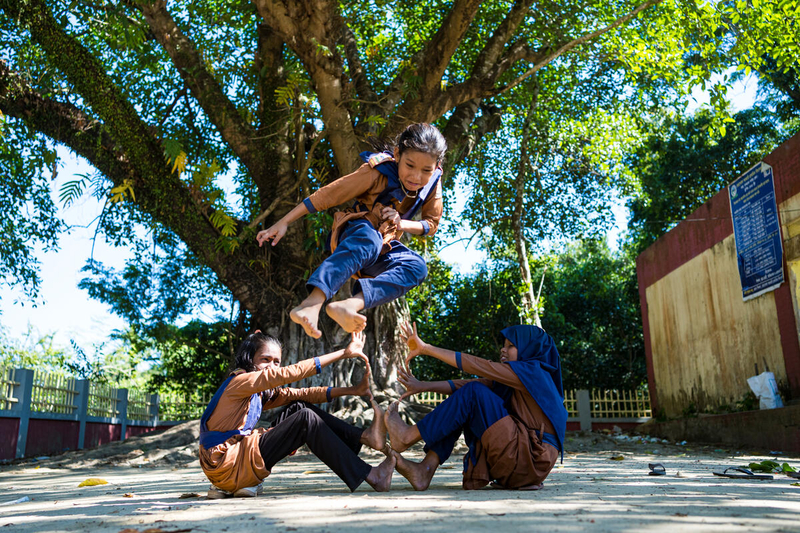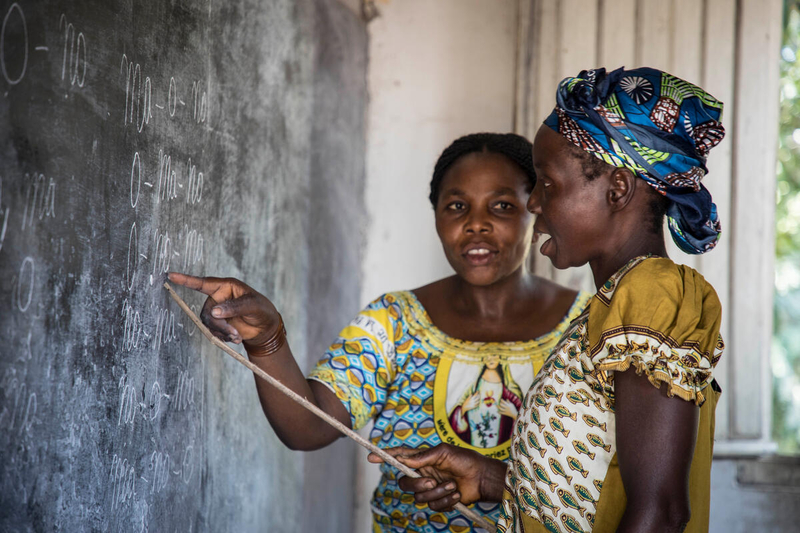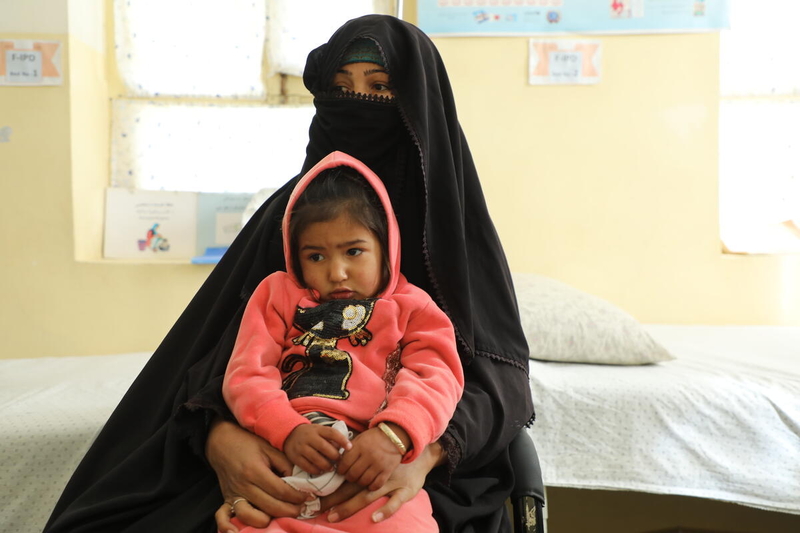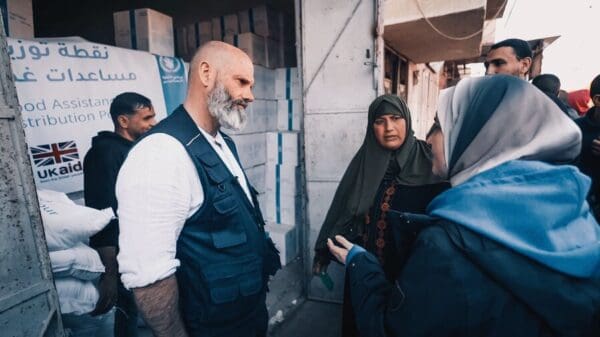In Conversation With World Food Program USA Female Senior Leadership Members on Gender Equality in the Workplace and Across the Globe

Gender equity and equality lie at the heart of so many United Nations World Food Programme (WFP) projects, from supporting the livelihoods of female farmers in Kenya to incentivizing air travel for female passengers in Afghanistan. Here at World Food Program USA, we understand the importance of equal access to resources and decision-making power for women and girls.
We sat down with some of the remarkable women of our office to hear about how gender shaped their trajectories as leaders, and their advice for future generations of women and girls exploring careers in development to break some rules and color outside the lines. Read on for excerpts from their conversation.
Jessamyn: I’d like to ask each of you how gender equality relates to your area of interest at World Food Program USA.
Rebecca: I share the stories of WFP with members of Congress and their staff. It’s important to talk about the way women are supported through WFP’s work: how they’re given access to decision-making and positions of leadership.
Gabriella: My responsibility in leading the Development Team is to find partners who share our belief that women need our help in combatting cultural stigmas, the effects of war and other issues that lead to higher levels of hunger. We’re so proud of the over 60 million women that WFP has helped around the world.
Katharine: My role at World Food Program USA is more internally focused. As chief of staff for the organization, I am focused on working with our board and our teams. I think the fact that we’re having this conversation as the four women senior leaders of World Food Program USA speaks to leading by example. Not only do we want to help women and girls across the globe, but we’re acting on those beliefs of gender equality internally.
Jessamyn: As the chief marketing officer, it’s taking all those things that you do every day and the stories of the people we’re working with on the ground in over 80 countries around the world – and highlighting the stories of women. It is so important to me to ensure that we’re being equitable in the stories we tell, and that we’re being truthful to the people we’re representing.

“We’re looking for those partners who want to correct a wrong, who believe in equity, who believe that women have a seat at the table and want to help us help them,” said Gabriella Morris World Food Program USA’s chief philanthropy officer.
Gabriella: Can you share the strategies for growing and moving up into positions of power at an organization?
Jessamyn: I think that having sponsors along the way to help you navigate boardrooms and teach you lessons is important. And it’s just as important being at an organization like World Food Program USA where women leaders are heard. Here, we have the equal opportunity to make impactful decisions and take risks.

In 2021, World Food Program USA reported 76% of their staff identified as female.
Jessamyn: What is missing in the workplace for the future generations of female leaders?
Rebecca: There are still so many barriers for childcare. I think World Food Program USA has been thoughtful in revisiting our maternity and paternity leave policy and being more mindful of what a critical moment that is in a family’s life. But the barriers around childcare and the financial stress it puts on families is something that as a country we haven’t reconciled. You look at the number of people that dropped out of the workforce during COVID-19, particularly women, and a lot of the research shows that it is connected to the burden and cost of childcare – particularly with school closures sending kids home. I think it’s something that we collectively as a nation need to think about as we go forward.

“I think the best opportunities come when you take a chance,” said Jessamyn Sarmiento, World Food Program USA’s chief marketing officer.
Rebecca: What is your professional advice for women like yourself looking to be leaders in the field?
Katharine: My best professional advice is to build a network and maintain it. That doesn’t mean you have to call someone once a week, but you should check in with colleagues who inspire you. You never know when you might change what you want to do. This brings me to my next best piece of advice, which is to figure out what you don’t want to do because I think knowing what you don’t want to do is just as important as what you do.
Rebecca: I’ve been reflecting on a phenomenal mentor, friend and inspiration, Janet Shaffron. She was the legislative director in the congressional office I worked in fresh out of college. I was the staff assistant doing the tedious job of answering phones, greeting people when they came in and opening the mail back when that was still a thing.
A scheduling position opened up that I was going to take, and Janet pulled me aside and said “It’s not what you need. Just be patient and there’ll be a legislative opening.” And then, of course, shortly thereafter there was a legislative position that opened up, and I moved onto the track that set me on the rest of my career.
With that being said, it is important to have somebody in your circle say, “You know, I get this looks good, but this isn’t going to take you where you want to go.” I’ve been so grateful for those conversations throughout my career.
Gabriella: I would like to add that if you find yourself in a position that you don’t want, to still do a great job. You won’t get the next job if you didn’t do a great job with the last one. I also just want to take a moment to shout out the women on our Development Team because they are fearless, they’re ambitious, they’re proactive. I know we will see great things for them in the future.
Jessamyn: I would say you break some rules, choose to color outside the lines. Don’t adhere to what others say, either your role or your thinking should be. I think the best opportunities come when you take a chance. And I think, sometimes as females, we want to play it safe and don’t want to stick out. I would say do the opposite.
Click here to learn more about the people behind World Food Program USA and here to learn more about our open roles.




